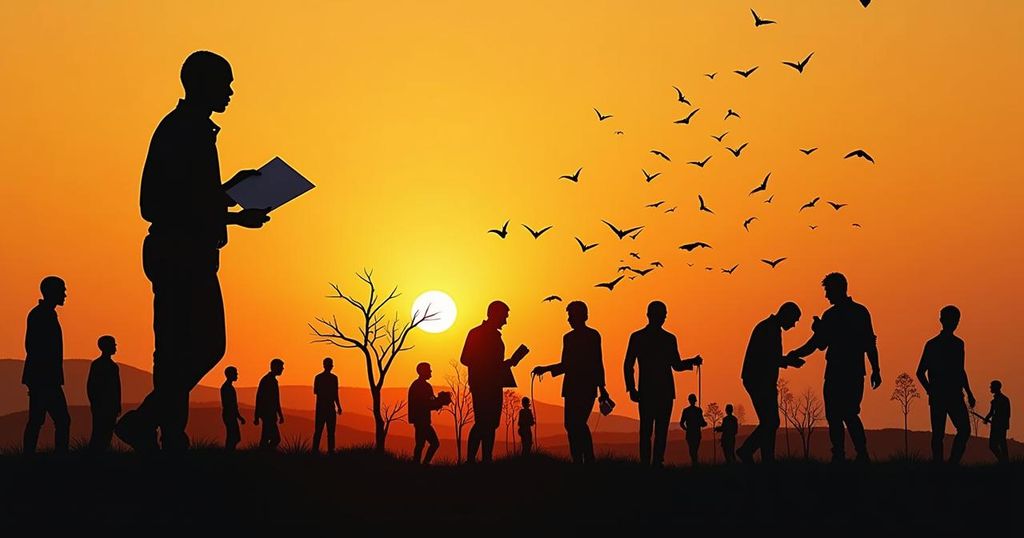Overview of Mozambique’s Presidential Election
Mozambique’s presidential election is set for Wednesday, as voters choose a successor to President Filipe Nyusi after his two terms. Approximately 17 million citizens are registered to vote for the presidency and parliamentary seats amid challenges including a jihadist insurgency and severe food shortages. Key candidates include Frelimo’s David Chapo and independent Venacio Mondlane, among others. The ruling party faces scrutiny over prior corruption allegations, impacting public sentiment and electoral dynamics.
The presidential election in Mozambique is poised to take place on Wednesday, during which the nation will select a successor to President Filipe Nyusi, who has completed two terms in office. Approximately 17 million voters are registered in a country of 31 million, voting not only for the presidency but also for 250 parliamentary and provincial assembly seats. While the ruling Front for the Liberation of Mozambique (Frelimo) is anticipated to maintain its hold on power, four candidates are vying for change amid ongoing challenges, including a jihadist insurgency in the north and climate-related flooding along the extensive coastline. The ongoing insurgency has displaced over 1.3 million individuals, with significant casualties and destruction to communities in Cabo Delgado. In addition to conflict, the country is grappling with severe food shortages caused by droughts impacting millions. In the election, David Chapo serves as Frelimo’s candidate; he is a former governor of Inhambane, a key tourism region. His main competitor is independent candidate Venacio Mondlane, a banker and forestry engineer, who has gained popularity with the slogan, “Save Mozambique, this country’s ours.” He has alleged electoral fraud during prior contests, asserting he was denied rightful victories. The Democratic Movement of Mozambique’s Lutero Simango and Renamo’s Ossufo Momade are also in the running, contributing to a diverse political landscape. The elections occur against a backdrop of recent violent protests due to allegations of corruption within the ruling party, notably the tuna bond scandal, where significant embezzlement led to a financial crisis and international aid withdrawal. Voting will conclude after a single day, with results to be reported gradually, followed by official validation from relevant bodies.
Mozambique’s political landscape has been shaped by historical factors including its fight for independence from Portugal in 1975 and a past marked by civil strife. The ruling Frelimo party has been in power since independence, but faces significant challenges such as a growing jihadist insurgency that has unsettled the north of the country and economic difficulties exacerbated by climate change phenomena like droughts. The societal issues, particularly those surrounding corruption and food insecurity, have heightened the stakes of this election, prompting heightened voter engagement and competition among candidates. With a substantial portion of the population reliant on agriculture and facing food scarcity and unemployment, the election highlights critical themes of governance, security, and economic development. The recent corruption scandals, particularly the tuna bond controversy, have further fueled public discontent, shaping the current electoral dynamics and candidates’ platforms.
The upcoming presidential election in Mozambique represents a pivotal moment for the nation, as it seeks to navigate the complexities of ongoing insurgencies, economic challenges, and public dissatisfaction with corruption in governance. The candidates are positioned to address pressing developmental issues while attempting to garner support from an electorate increasingly engaged in the political process. The outcome of this election will significantly influence the trajectory of Mozambique’s future amidst these challenges.
Original Source: abcnews.go.com




Post Comment